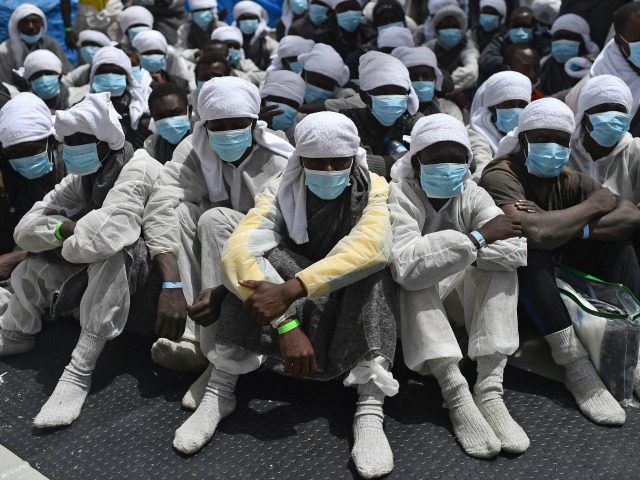In the combined efforts of six separate rescue operations Monday, Italian Navy patrollers rescued some 500 migrants off the coast of Libya, as well as recovering eight lifeless bodies.
A number of the migrants were pulled from the sea after having fallen from a sinking rubber dinghy. Two patrolling helicopters spotted the shipwreck in time to intervene and save most of the stranded migrants, but rescue operations have continued throughout the day and officials believe that there may be more survivors.
The Italian Navy was assisted in its efforts by Doctors without Borders, an international humanitarian group that has been active in the Strait of Sicily, which separates Italy from North Africa.
A number of the migrants have already arrived on Italian soil, either on the island of Lampedusa or in the southern region of Reggio Calabria.
The 500 migrants join the 13,000 others who arrived in Italy during the last week of August.
According to the United Nations refugee agency (UNHCR), Italy has received some 122,000 migrants so far this year. Since the so-called “Balkan route” was effectively shut down last spring, Italy has become the focal point of Europe’s migrant crisis, the worst immigration Europe has faced since the Second World War.
More than 2% of the migrants who have attempted the perilous crossing from North Africa to southern Italy during 2016 have died in the attempt, according to a UNHCR spokesman.
Though the flow of migrants through Greece has slowed, thanks to an arrangement between the European Union’s (EU) and Turkey, Turkish President Recip Tayyip Erdogan has threatened to back out of the accord and release millions of migrants if the EU backtracks on its promise to grant visa-free European travel to Turks by October.
Despite the precarious accord, thousands of illegal migrants have arrived in Greece in recent weeks, and some 57,000 people are currently housed in refugee camps awaiting the processing of their appeals for asylum.
Follow Thomas D. Williams on Twitter Follow @tdwilliamsrome

COMMENTS
Please let us know if you're having issues with commenting.